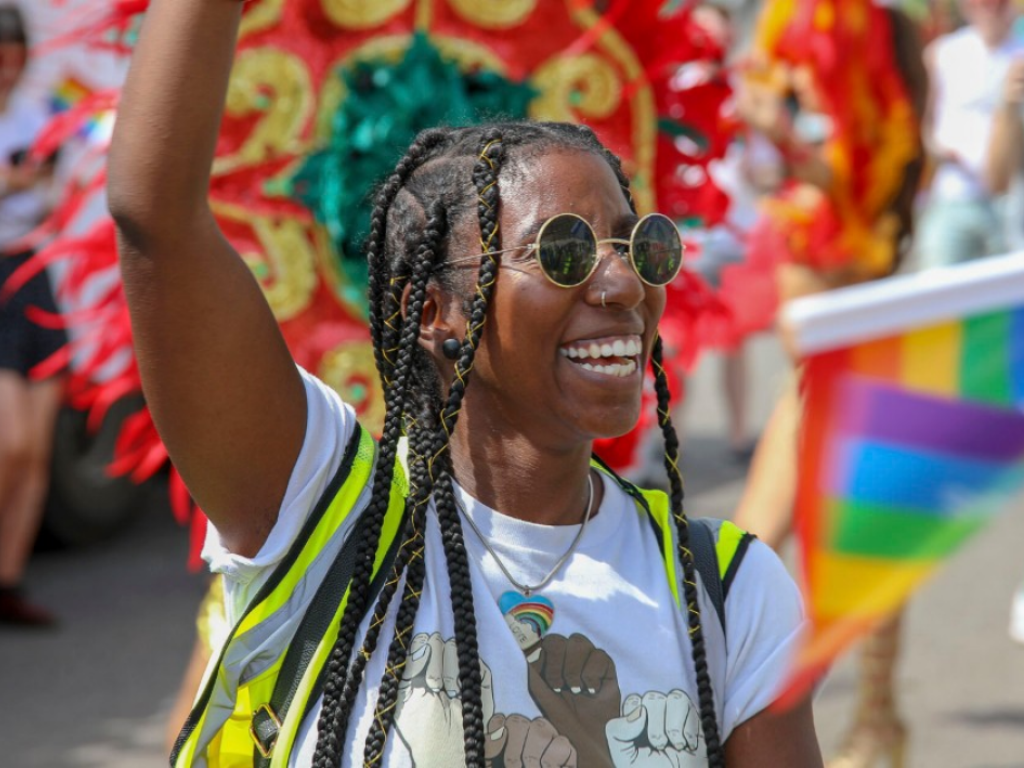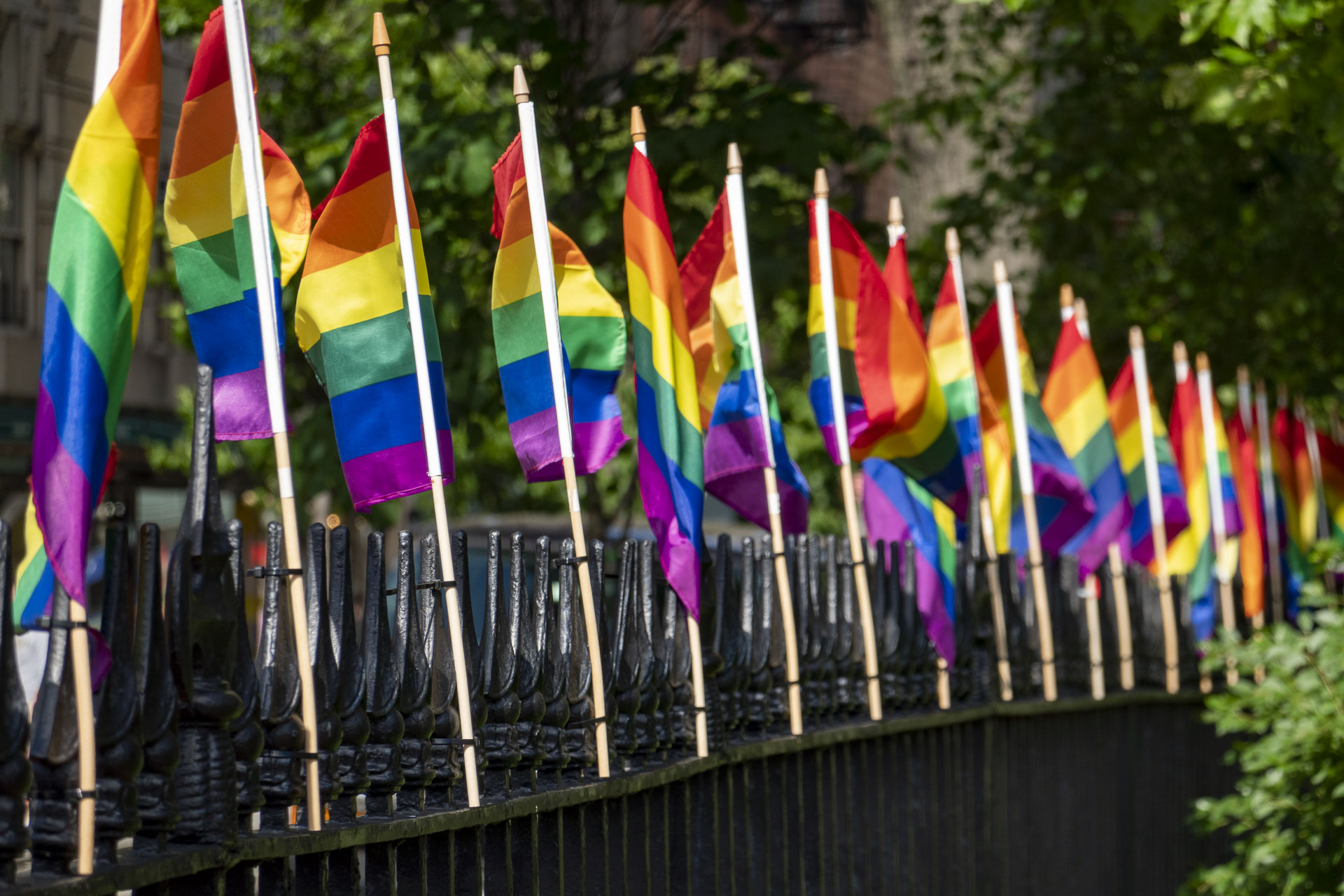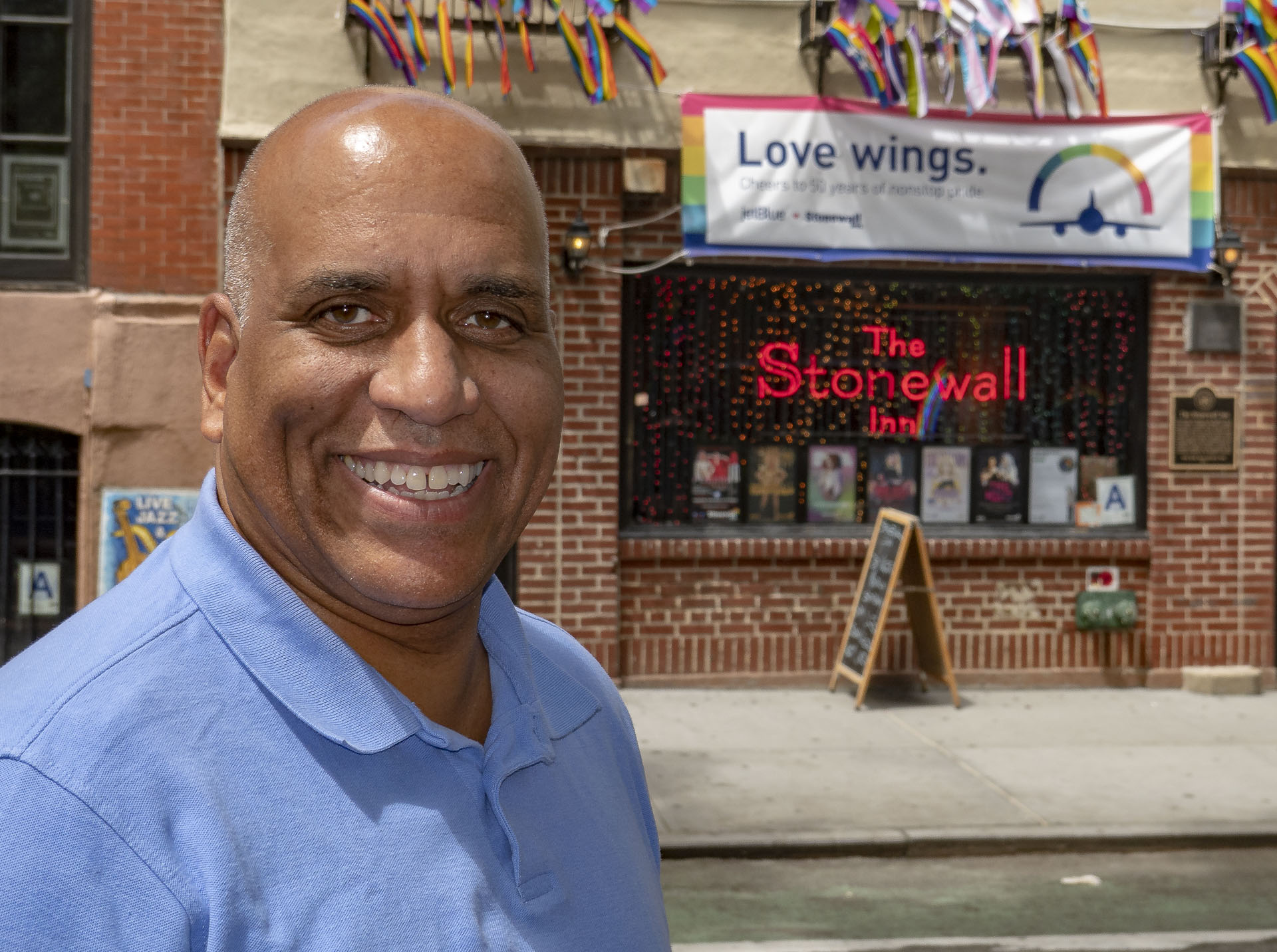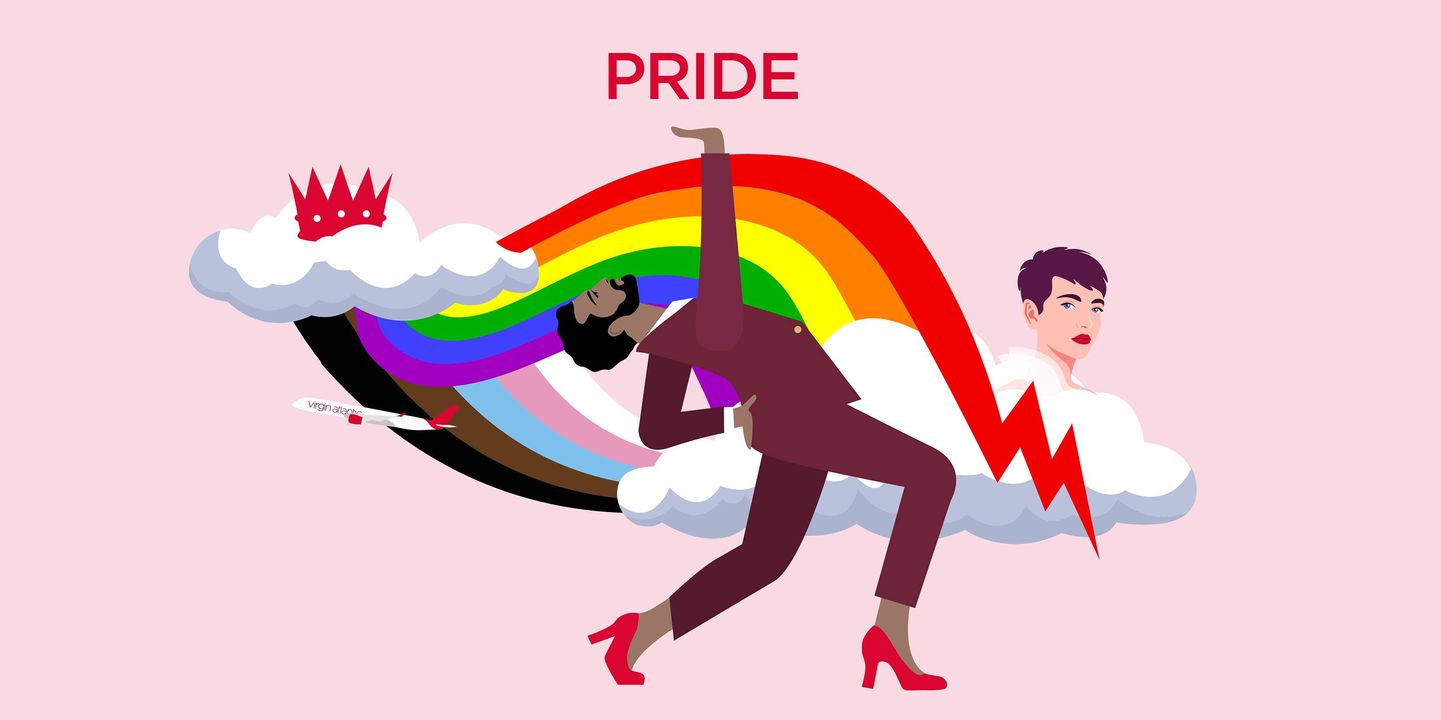BOB'S STORY
Fast forward 50 years and welcoming the world to NYC on behalf of Virgin Atlantic is Bob Wallace, one of our Duty Managers at JFK airport. He can’t remember the first Pride march that he took part in but suffice to say he’s been around the scene in New York long enough to have experienced the good times and the bad.
Bob joined Virgin Atlantic 28 years ago, initially as a telephone sales agent in the city, before looking after our Upper Class customers, then moving to a role at the airport. Today he’s a duty manager with responsibility for the whole operation. When Bob talks about how he had to hide who he really was at his previous employer – a conservative airline operating out of Texas – you realise just how important this stuff is. It wasn’t until he switched to working at Virgin Atlantic that he felt he could come out and be his true self. We’re so glad you did, Bob.
Over the years Bob has spent many great nights at the Stonewall Inn, but to learn more about the history of the Pride movement, I joined him for the Stonewall Tour – a two hour narrated stroll through Greenwich Village to discover more about that fateful night and the characters involved.
We started at at the famous inn, where our guide Sara gave a moving account of that night, the events leading up to it and what happened on the following nights (more riots). Other highlights include Julius, the oldest gay bar in the city, where the Mattichine society held a gay ‘sip in’ to protest about the fact that it was illegal to serve homosexuals at the time, and The NYC AIDS Memorial Park, the memorial to all the people who died of AIDS and those who treated them. Back in New York at the peak of the epidemic, St Vincent’s Hospital was one of the only medical facilities that would admit and treat those dying of AIDS. Controversially, several of its buildings have been developed into upmarket apartments, but in its shadow, AIDS Park is an uplifting space and somewhere for quiet reflection. We ended up at the Stonewall National Monument, just opposite the inn. This vibrant space used to be called Christopher Park and was always a meeting place for the community. It was declared a New York City landmark in 2015 and, in one of his last acts as president, Barack Obama made it a National Monument, the first designated as an LGBT historic site. This means it is cared for by park rangers who’ve been doing a fantastic job creating a joyful space and decking it out for Pride in countless rainbow flags.




